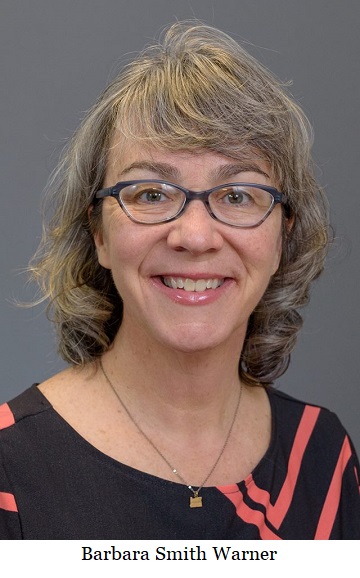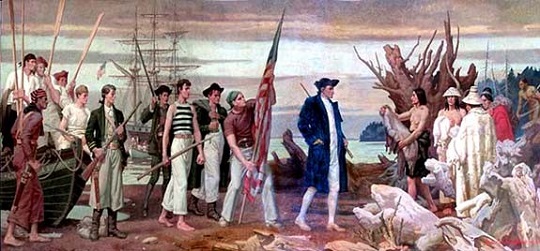“Hate and racist violence in Oregon is undeniableâ€
Oregon’s Legislature’s
BIPOC Caucus applauded House Speaker Tina Kotek and House Majority Leader Barbara Smith Warner for their commitment to build a more equitable Capitol. BIPOC stands for “Black, Indigenous and People of Color.†Governor Brown in her
State of the State address expanded that “to build back a more just and equitable Oregon in the face of the COVID-19 pandemic, historic wildfires, and a long overdue clarion call for racial justice.â€
The Caucus states: “The history of hate and racist violence in Oregon is undeniable.†Referring to Speaker Kotek and Smith-Warner’s
statement: "From its very start, Oregon was founded as an anti-Black white utopia. Black people were banned from the state in the Oregon Constitution, and the Oregon Territory itself is land stolen from the Native tribes who had made this region home for centuries. Through deliberate policies—from red-lining to forced displacement for economic development—Black families were literally robbed of wealth and kept from living in many parts of the state for decades.â€
Governor Brown states, “The first step to creating opportunity is recognizing that racism is endemic to our systems, impacting every part of our culture and our economy.â€
What exactly are they referring to? Generally, the suppression of Black people is related to slavery and after President Lincoln issued the Emancipation Proclamation on January 1, 1863, it lived on with the Ku Klux Klan.
The Oregon that settlers encountered was post-Civil War, it wasn’t until 1865 when the Confederates surrendered that slaves were emancipated. Oregon was not immune from this division over slavery and even before the emancipation Oregon passed a law prohibiting slavery in 1843. The Provisional Government passed Oregon’s first exclusion law in 1844, the temporary governing political structure set up by the first settlers coming over the Oregon Trail. This first law included a ban on slavery and required slaveowners free their slaves. However, African Americans who were granted their freedom, were expelled. In 1849 another exclusion law was passed that allowed black residents already in Oregon to remain, but banned further African American in-migration. This law was in effect until 1854 when it was repealed. In 1857, when a constitution was written in anticipation of statehood, an exclusion clause was included prohibiting new in-migration of African Americans, as well as making illegal their ownership of real estate and entering into contracts or use of courts. Regardless of the passing of the 14th and 15th Amendments, Oregon’s exclusion wasn’t repealed until 1927.
"The Ku Klux Klan grew and faded quickly in Oregon in the 1920s. According to historian Eckard Toy, the klan stories weren’t of burning crosses in their wake. â€The rural klan chapters were known to attend community events to further their cause, which is why there are photographs of the klan passing out Bibles in local parades.â€
A D V E R T I S E M E N T

A D V E R T I S E M E N T
“In spite of the name Ku Klux Klan most people didn't even know that this group was a racist group. They would participate in events under the guise of increasing their fraternal organization numbers. It wasn't until people in the community became involved that they became aware of the racist nature of this group. However, the racism of this group wasn't focused on African Americans, rather it was anti-Catholic and anti-Jewish. In fact, former President Harry S Truman was planning to join the KKK until he found out this information. Most ex-members were ashamed they ever were members," according to Toy.

However, the Portland KKK headquarters managed to win seats in the legislature and local and county offices. They were able to pass legislation prohibiting ownership of land by aliens, aimed at Japanese immigrants. Even though the klans faded away in a few years, it had ingrained a mindset and culture that BIPOC claims has not faded and they remind us: “We do this work on land stolen from indigenous people under a state constitution that, at its founding, specifically banned people of color. We are regularly reminded of this history whenever we sit at our desks on the floors of the Oregon House of Representatives and Oregon Senate, where murals of white settlers and the names of mostly white men hang over our heads.â€
Even though Oregon laws weren’t friendly towards giving opportunities to African-Americans, it never did allow slavery. But. Not being a notable part of Oregon’s history, they still benefit as government has evolved. We can’t change history, but we can learn from it and BIPOC can be their pioneers going forward. What will that look like? The caucus has introduced, drafted or plans to develop more than 40 pieces of legislation. Some good, and some not so good.
Rep. Janelle Bynum, D-Happy Valley, introduced
HB 2928 to restrict law enforcement use of munitions, which would limit the use of pepper spray to officially declared riots, ban the use of impact projectiles for crowd control except against individuals in specific circumstances and allow people to sue the police for violating those proposed rules. Bynum also has proposals to phase out the cap on damages in lawsuits against police agencies and require thorough background checks — including checking references, a psychiatric evaluation and a racial bias and sympathy test — for all law enforcement hires.
What does equity or inequity look like when it comes to correcting the past? When is there ever a “clean slate†that makes everything balanced?
--Donna Bleiler| Post Date: 2021-01-21 17:04:59 | Last Update: 2021-01-21 17:15:09 |








 However, the Portland KKK headquarters managed to win seats in the legislature and local and county offices. They were able to pass legislation prohibiting ownership of land by aliens, aimed at Japanese immigrants. Even though the klans faded away in a few years, it had ingrained a mindset and culture that BIPOC claims has not faded and they remind us: “We do this work on land stolen from indigenous people under a state constitution that, at its founding, specifically banned people of color. We are regularly reminded of this history whenever we sit at our desks on the floors of the Oregon House of Representatives and Oregon Senate, where murals of white settlers and the names of mostly white men hang over our heads.â€
However, the Portland KKK headquarters managed to win seats in the legislature and local and county offices. They were able to pass legislation prohibiting ownership of land by aliens, aimed at Japanese immigrants. Even though the klans faded away in a few years, it had ingrained a mindset and culture that BIPOC claims has not faded and they remind us: “We do this work on land stolen from indigenous people under a state constitution that, at its founding, specifically banned people of color. We are regularly reminded of this history whenever we sit at our desks on the floors of the Oregon House of Representatives and Oregon Senate, where murals of white settlers and the names of mostly white men hang over our heads.â€